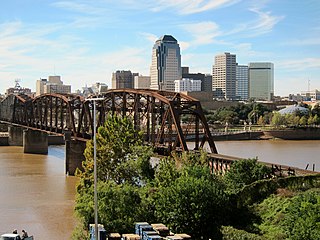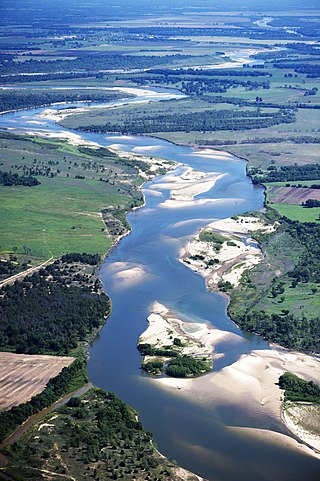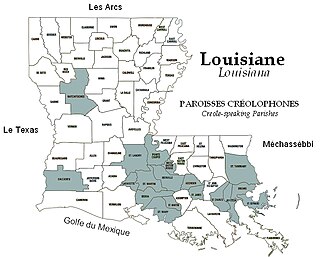Related Research Articles

West Carroll Parish is a parish located in the northeastern part of the U.S. state of Louisiana. As of the 2020 census, the population was 9,751. The parish seat is Oak Grove. The parish was founded in 1877, when Carroll Parish was divided.

Union Parish is a parish located in the north central section of the U.S. state of Louisiana. As of the 2020 census, the population was 21,107. The parish seat is Farmerville. The parish was created on March 13, 1839, from a section of Ouachita Parish. Its boundaries have changed four times since then.

Sabine Parish is a parish located in the U.S. state of Louisiana. As of the 2020 census, the population was 22,155. The seat of the parish is Many.

Lincoln Parish is a parish located in the U.S. state of Louisiana. As of the 2020 census, the population was 48,396. The parish seat is Ruston. The parish was created on February 24, 1873, from parts of Bienville, Claiborne, Union, and Jackson parishes, and its boundaries have changed only once. This makes Lincoln Parish one of the Reconstruction parishes.

Lafayette is a city in the U.S. state of Louisiana, and the most populous city and parish seat of Lafayette Parish, located along the Vermilion River. It is Louisiana's 4th most populous city by population with a 2020 census population of 121,374; the consolidated city-parish's population was 241,753 in 2020. The Lafayette metropolitan area was Louisiana's third largest metropolitan statistical area with a population of 478,384 at the 2020 census. The Acadiana region containing Lafayette is the largest population and economic corridor between Houston, Texas and New Orleans.

Shreveport is a city in the U.S. state of Louisiana. It is the 3rd most populous city in Louisiana after New Orleans and Baton Rouge. The Shreveport–Bossier City metropolitan area, with a population of 393,406 in 2020. Though 2020 census estimates placed its population at 397,590. The bulk of Shreveport is in Caddo Parish, of which it is the parish seat. It extends along the west bank of the Red River into neighboring Bossier Parish. The United States Census Bureau's 2020 census tabulation for the city's population was 187,593, though the American Community Survey's census estimates determined 189,890 residents.

The Red River, or sometimes the Red River of the South, is a major river in the Southern United States. It was named for its reddish water color from passing through red-bed country in its watershed. It is known as the Red River of the South to distinguish it from the Red River of the North, which flows between Minnesota and North Dakota into the Canadian province of Manitoba. Although once a tributary of the Mississippi River, the Red River is now a tributary of the Atchafalaya River, a distributary of the Mississippi that flows separately into the Gulf of Mexico. This confluence is connected to the Mississippi River by the Old River Control Structure.

The Ark-La-Tex is a socio-economic tri-state region where the Southern U.S. states of Arkansas, Louisiana, and Texas join together. The region contains portions of Northwest Louisiana, Northeast Texas, and South Arkansas as well as the extreme southeastern tip of Oklahoma, in McCurtain County, partly centered upon the Red River, which flows along the Texas–Oklahoma state line into Southwestern Arkansas and Northwest Louisiana.

Murphy James Foster was the 31st Governor of the U.S. state of Louisiana, an office he held for two terms from 1892 to 1900. Foster supported the Louisiana Constitution of 1898, which effectively disfranchised the black majority, who were mostly Republicans. This led to Louisiana becoming a one-party Democratic state for several generations and excluding African Americans from the political system.

Louisiana Creole is a French-based creole language spoken by fewer than 10,000 people, mostly in the state of Louisiana. Also known as Kouri-Vini, it is spoken today by people who may racially identify as White, Black, mixed, and Native American, as well as Cajun and Creole. It should not be confused with its sister language, Louisiana French, a dialect of the French language. Many Louisiana Creoles do not speak the Louisiana Creole language and may instead use French or English as their everyday languages.

The Atakapa or Atacapa were an Indigenous people of the Southeastern Woodlands, who spoke the Atakapa language and historically lived along the Gulf of Mexico in what is now Texas and Louisiana.

Caddo Parish is a parish located in the northwestern corner of the U.S. state of Louisiana. According to the 2020 U.S. census, the parish had a population of 237,848. The parish seat is Shreveport, which developed along the Red River.

Paul Octave Hébert was the 14th Governor of Louisiana from 1853 to 1856 and a brigadier general in the Confederate States Army.

Louisiana Creoles are people descended from the inhabitants of colonial Louisiana before it became a part of the United States during the period of both French and Spanish rule. As an ethnic group, their ancestry is mainly of Louisiana French, Central African, West African, Spanish and Native American origin. Louisiana Creoles share cultural ties such as the traditional use of the French, Spanish, and Creole languages and predominant practice of Catholicism.
More than 1,500 African American officeholders served during the Reconstruction era (1865–1877) and in the years after Reconstruction before white supremacy, disenfranchisement, and the Democratic Party fully reasserted control in Southern states. Historian Canter Brown Jr. noted that in some states, such as Florida, the highest number of African Americans were elected or appointed to offices after the end of Reconstruction in 1877. The following is a partial list of notable African American officeholders from the end of the Civil War until before 1900. Dates listed are the year that a term states or the range of years served if multiple terms.
Canarian Americans are Americans whose ancestors came from the Canary Islands, Spain. They can trace their ancestry to settlers and immigrants who have emigrated since the 16th century to the present-day United States. Most of them are descendants of settlers who immigrated to Spanish colonies in the South of the modern US during the 18th century. The Canarians were among the first settlers of the modern United States; the first Canarians migrated to modern Florida in 1569, and were followed by others coming to La Florida, Texas and Louisiana.
The following is a timeline of the history of the city of Shreveport, Louisiana, USA.

The 1952 United States presidential election in Louisiana took place on November 4, 1952, as part of the 1952 United States presidential election. State voters chose ten representatives, or electors, to the Electoral College, who voted for president and vice president.

Louisiana French is an umbrella term for the dialects and varieties of the French language spoken traditionally by French Louisianians in colonial Lower Louisiana. As of today Louisiana French is primarily used in the state of Louisiana, specifically in its southern parishes.
Harry Lott was an African American Republican politician in Louisiana during Reconstruction. He was elected to the Louisiana House of Representatives, representing Rapides Parish, 1868 and 1870.